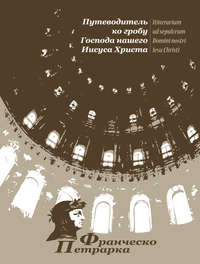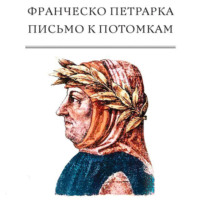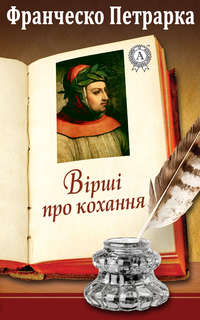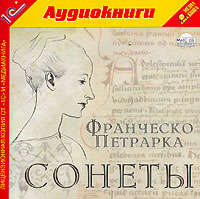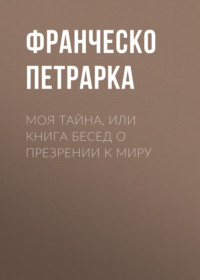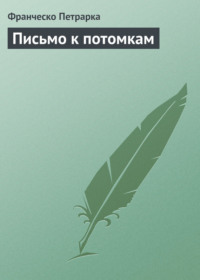 полная версия
полная версияThe Sonnets, Triumphs, and Other Poems of Petrarch
This copy of Virgil is famous, also, for a miniature picture expressing the subject of the Æneid; which, by the common consent of connoisseurs in painting, is the work of Simone Memmi. Mention has already been made of the friendly terms that subsisted between that painter and our poet; whence it may be concluded that Petrarch, who received this precious MS. in 1338, requested of Simone this mark of his friendship, to render it more valuable.
When the library of Pavia, together with the city, was plundered by the French in 1499, and when many MSS. were carried away to the library of Paris, a certain inhabitant of Pavia had the address to snatch this copy of Virgil from the general rapine. This individual was, probably, Antonio di Pirro, in whose hands or house the Virgil continued till the beginning of the sixteenth century, as Vellutello attests in his article on the origin of Laura. From him it passed to Antonio Agostino; afterwards to Fulvio Orsino, who prized it very dearly. At Orsino's death it was bought at a high price by Cardinal Federigo Borromeo, and placed in the Ambrosian library, which had been founded by him with much care and at vast expense.
Until the year 1795, this copy of Virgil was celebrated only on account of the memorandum already quoted, and a few short marginal notes, written for illustrations of the text; but, a part of the same leaf having been torn and detached from the cover, the librarians, by chance, perceived some written characters. Curiosity urged them to unglue it with the greatest care; but the parchment was so conglutinated with the board that the letters left their impression on the latter so palely and weakly, that the librarians had great difficulty in making out the following notice, written by Petrarch himself: "Liber hic furto mihi subreptus fuerat, anno domini mcccxxvi., in Kalend. Novembr., ac deinde restitutus, anno mcccxxxvii., die xvii. Aprilis, apud Aivino."
Then follows a note by the poet himself, regarding his son: "Johannes noster, natus ad laborem et dolorem meum, et vivens gravibus atque perpetuis me curis exercuit, et acri dolore moriens vulneravit, qui cum paucos et lætos dies vidisset in vita sua, decessit in anno domini 1361, ætatis suæ xxv., die Julii x. seu ix. medio noctis inter diem veneris et sabbati. Rumor ad me pervenerat xiiio mensis ad vesperam, obiit autem Mlni illo publico excidio pestis insolito, quæ urbem illam, hactenus immunem, talibus malis nunc reperit atque invasit. Rumor autem primus ambiguus 8vo. Augusti, eodem anno, per famulum meum Mlno redeuntem, mox certus, per famulum Domni Theatini Roma venientem 18me. mensis ejusdem Mercurii, sero ad me pervenit de obitu Socratis mei amici, socii fratrisque optimi, qui obiisse dicitur Babilone seu Avenione, die mense Maii proximo. Amisi comitem ac solatium vitæ meæ. Recipe Xte Ihu, hos duos et reliquos quinque in eterna tabernacula tua."11 He alludes to the death of other friends; but the entire note is too long to be quoted, and, in many places, is obscured by contractions which make its meaning doubtful.
The perfect accordance of these memoranda with the other writings of the poet, conjoined with historical facts, show them incontestably to have come from the hand of Petrarch.
The precious MS. of Virgil, containing the autograph of Petrarch, is no longer in Italy. Like many other relics held sacred by the Italians, it was removed by the French during the last conquest of Italy.
Among the incidents of Petrarch's life, in 1348, we ought to notice his visits to Giacomo da Carrara, whose family had supplanted the Della Scalas at Padua, and to Manfredi Pio, the Padrone of Carpi, a beautiful little city, of the Modenese territory, situated on a fine plain, on the banks of the Secchio, about four miles from Correggio. Manfredi ruled it with reputation for twenty years. Petrarch was magnificently received by the Carraras; and, within two years afterwards, they bestowed upon him the canonicate of Padua, a promotion which was followed in the same year by his appointment to the archdeaconry of Parma, of which he had been hitherto only canon.
Not long after the death of Laura, on the 3rd of July of the same year, Petrarch lost Cardinal Colonna, who had been for so many years his friend and patron. By some historians it is said that this prelate died of the plague; but Petrarch thought that he sank under grief brought on by the disasters of his family. In the space of five years the Cardinal had lost his mother and six brothers.
Petrarch still maintained an interest in the Colonna family, though that interest was against his own political principles, during the good behaviour of the Tribune. After the folly and fall of Rienzo, it is probable that our poet's attachment to his old friends of the Roman aristocracy revived. At least, he thought it decent to write, on the death of Cardinal Colonna, a letter of condolence to his father, the aged Stefano, who was now verging towards his hundredth year. Soon after this letter reached him, old Stefano fell into the grave.
The death of Cardinal Colonna was extremely felt at Avignon, where it left a great void, his house having been the rendezvous of men of letters and genius. Those who composed his court could not endure Avignon after they had lost their Mæcenas. Three of them were the particular friends of Petrarch, namely, Socrates, Luca Christine and Mainardo Accursio. Socrates, though not an Italian, was extremely embarrassed by the death of the Cardinal. He felt it difficult to live separated from Petrarch, and yet he could not determine to quit France for Italy. He wrote incessantly the most pressing letters to induce our poet to return and settle in Provence. Luca and Mainardo resolved to go and seek out Petrarch in Italy, in order to settle with him the place on which they should fix for their common residence, and where they should spend the rest of their lives in his society. They set out from Avignon in the month of March, 1349, and arrived at Parma, but did not find the poet, as he was gone on an excursion to Padua and Verona. They passed a day in his house to rest themselves, and, when they went away, left a letter in his library, telling him they had crossed the Alps to come and see him, but that, having missed him, as soon as they had finished an excursion which they meant to make, they would return and settle with him the means of their living together. Petrarch, on his return to Parma, wrote several interesting letters to Mainardo. In one of them he says, "I was much grieved that I had lost the pleasure of your company, and that of our worthy friend, Luca Christino. However, I am not without the consoling hope that my absence may be the means of hastening your return. As to your apprehensions about my returning to Vaucluse, I cannot deny that, at the entreaties of Socrates, I should return, provided I could procure an establishment in Provence, which would afford me an honourable pretence for residing there, and, at the same time, enable me to receive my friends with hospitality; but at present circumstances are changed. The Cardinal Colonna is dead, and my friends are all dispersed, excepting Socrates, who continues inviolably attached to Avignon.
"As to Vaucluse, I well know the beauties of that charming valley, and ten years' residence is a proof of my affection for the place. I have shown my love of it by the house which I built there. There I began my Africa, there I wrote the greater part of my epistles in prose and verse, and there I nearly finished all my eclogues. I never had so much leisure, nor felt so much enthusiasm, in any other spot. At Vaucluse I conceived the first idea of giving an epitome of the Lives of Illustrious Men, and there I wrote my Treatise on a Solitary Life, as well as that on religious retirement. It was there, also, that I sought to moderate my passion for Laura, which, alas, solitude only cherished. In short, this lonely valley will for ever be pleasing to my recollections. There is, nevertheless, a sad change, produced by time. Both the Cardinal and everything that is dear to me have perished. The veil which covered my eyes is at length removed. I can now perceive the difference between Vaucluse and the rich mountains and vales and flourishing cities of Italy. And yet, forgive me, so strong are the prepossessions of youth, that I must confess I pine for Vaucluse, even whilst I acknowledge its inferiority to Italy."
Whilst Petrarch was thus flattering his imagination with hopes that were never to be realized, his two friends, who had proceeded to cross the Apennines, came to an untimely fate. On the 5th of June, 1349, a servant, whom Petrarch had sent to inquire about some alarming accounts of the travellers that had gone abroad, returned sooner than he was expected, and showed by his face that he brought no pleasant tidings. Petrarch was writing—the pen fell from his hand. "What news do you bring?" "Very bad news! Your two friends, in crossing the Apennines, were attacked by robbers." "O God! what has happened to them?" The messenger replied, "Mainardo, who was behind his companions, was surrounded and murdered. Luca, hearing of his fate, came back sword in hand. He fought alone against ten, and he wounded some of the assailants, but at last he received many wounds, of which he lies almost dead. The robbers fled with their booty. The peasants assembled, and pursued, and would have captured them, if some gentlemen, unworthy of being called so, had not stopped the pursuit, and received the villains into their castles. Luca was seen among the rocks, but no one knows what is become of him." Petrarch, in the deepest agitation, despatched fleet couriers to Placenza, to Florence, and to Rome, to obtain intelligence about Luca.
These ruffians, who came from Florence, were protected by the Ubaldini, one of the most powerful and ancient families in Tuscany. As the murder was perpetrated within the territory of Florence, Petrarch wrote indignantly to the magistrates and people of that State, intreating them to avenge an outrage on their fellow citizens. Luca, it appears, expired of his wounds.
Petrarch's letter had its full effect. The Florentine commonwealth despatched soldiers, both horse and foot, against the Ubaldini and their banditti, and decreed that every year an expedition should be sent out against them till they should be routed out of their Alpine caverns. The Florentine troops directed their march to Monte Gemmoli, an almost impregnable rock, which they blockaded and besieged. The banditti issued forth from their strongholds, and skirmished with overmuch confidence in their vantage ground. At this crisis, the Florentine cavalry, having[Pg lxxiii] ascended the hill, dismounted from their horses, pushed forward on the banditti before they could retreat into their fortress, and drove them, sword in hand, within its inmost circle. The Florentines thus possessed themselves of Monte Gemmoli, and, in like manner, of several other strongholds. There were others which they could not take by storm, but they laid waste the plains and cities which supplied the robbers with provisions; and, after having done great damage to the Ubaldini, they returned safe and sound to Florence.
While Petrarch was at Mantua, in February, 1350, the Cardinal Guy of Boulogne, legate of the holy see, arrived there after a papal mission to Hungary. Petrarch was much attached to him. The Cardinal and several eminent persons who attended him had frequent conversations with our poet, in which they described to him the state of Germany and the situation of the Emperor.
Clement VI., who had reason to be satisfied with the submissiveness of this Prince, wished to attract him into Italy, where he hoped to oppose him to the Visconti, who had put themselves at the head of the Ghibeline party, and gave much annoyance to the Guelphs. His Holiness strongly solicited him to come; but Charles's situation would not permit him for the present to undertake such an expedition. There were still some troubles in Germany that remained to be appeased; besides, the Prince's purse was exhausted by the largesses which he had paid for his election, and his poverty was extreme.
It must be owned that a prince in such circumstances could hardly be expected to set out for the subjugation of Italy. Petrarch, however, took a romantic view of the Emperor's duties, and thought that the restoration of the Roman empire was within Charles's grasp. Our poet never lost sight of his favourite chimera, the re-establishment of Rome in her ancient dominion. It was what he called one of his principles, that Rome had a right to govern the world. Wild as this vision was, he had seen Rienzo attempt its realization; and, if the Tribune had been more prudent, there is no saying how nearly he might have approached to the achievement of so marvellous an issue. But Rienzo was fallen irrecoverably, and Petrarch now desired as ardently to see the Emperor in Italy, as ever he had sighed for the success of the Tribune. He wrote to the Emperor a long letter from Padua, a few days after the departure of the Cardinal.
"I am agitated," he says, "in sending this epistle, when I think from whom it comes, and to whom it is addressed. Placed as I am, in obscurity, I am dazzled by the splendour of your name; but love has banished fear: this letter will at least make known to you my fidelity, and my zeal. Read it, I conjure you! You will not find in it the insipid adulation which is the plague of monarchs. Flattery is an art unknown to me. I have to offer you only complaints and regrets. You have forgotten us. I say more—you have forgotten yourself in neglecting Italy. We had high hopes that Heaven had sent you to restore us our liberty; but it seems that you refuse this mission, and, whilst the time should be spent in acting, you lose it in deliberating.
"You see, Cæsar, with what confidence an obscure man addresses you, a man who has not even the advantage of being known to you. But, far from being offended with the liberty I take, you ought rather to thank your own character, which inspires me with such confidence. To return to my subject—wherefore do you lose time in consultation? To all appearance, you are sure of the future, if you will avail yourself of the present. You cannot be ignorant that the success of great affairs often hangs upon an instant, and that a day has been frequently sufficient to consummate what it required ages to undo. Believe me, your glory and the safety of the commonwealth, your own interests, as well as ours, require that there be no delay. You are still young, but time is flying; and old age will come and take you by surprise when you are at least expecting it. Are you afraid of too soon commencing an enterprise for which a long life would scarcely suffice?
"The Roman empire, shaken by a thousand storms, and as often deceived by fallacious calms, places at last its whole hopes in you. It recovers a little breath even under the shelter of your name; but hope alone will not support it. In proportion as you know the grandeur of the undertaking, consummate it the sooner. Let not the love of your Transalpine dominions detain you longer. In beholding Germany, think of Italy. If the one has given you birth, the other has given you greatness. If you are king of the one, you are king and emperor of the other. Let me say, without meaning offence to other nations, that here is the head of your monarchy. Everywhere else you will find only its members. What a glorious project to unite those members to their head!
"I am aware that you dislike all innovation; but what I propose would be no innovation on your part. Italy is as well known to you as Germany. Brought hither in your youth by your illustrious sire, he made you acquainted with our cities and our manners, and taught you here the first lessons of war. In the bloom of your youth, you have obtained great victories. Can you fear at present to enter a country where you have triumphed since your childhood?
"By the singular favour of Heaven we have regained the ancient right of being governed by a prince of our own nation.12 Let Germany say what she will, Italy is veritably your country * * * * * Come with haste to restore peace to Italy. Behold Rome, once the empress of the world, now pale, with scattered locks and torn garments, at your feet, imploring your presence and support!" Then follows a dissertation on the history and heroes of Rome, which might be wearisome if transcribed to a modern reader. But the epistle, upon the whole, is manly and eloquent.
A few days after despatching his letter to the Emperor, Petrarch made a journey to Verona to see his friends. There he wrote to Socrates. In this letter, after enumerating the few friends whom the plague had spared, he confesses that he could not flatter himself with the hope of being able to join them in Provence. He therefore invokes them to come to Italy, and to settle either at Parma or at Padua, or any other place that would suit them. His remaining friends, here enumerated, were only Barbato of Sulmona, Francesco Rinucci, John Boccaccio, Lælius, Guido Settimo, and Socrates.
Petrarch had returned to Padua, there to rejoin the Cardinal of Boulogne. The Cardinal came back thither at the end of April, 1350, and, after dispensing his blessings, spiritual and temporal, set out for Avignon, travelling by way of Milan and Genoa. Petrarch accompanied the prelate out of personal attachment on a part of his journey. The Cardinal was fond of his conversation, but sometimes rallied the poet on his enthusiasm for his native Italy. When they reached the territory of Verona, near the lake of Guarda, they were struck by the beauty of the prospect, and stopped to contemplate it. In the distance were the Alps, topped with snow even in summer. Beneath was the lake of Guarda, with its flux and reflux, like the sea, and around them were the rich hills and fertile valleys. "It must be confessed," said the Legate to Petrarch, "that your country is more beautiful than ours." The face of Petrarch brightened up. "But you must agree," continued the Cardinal, perhaps to moderate the poet's exultation, "that ours is more tranquil." "That is true," replied Petrarch, "but we can obtain tranquillity whenever we choose to come to our senses, and desire peace, whereas you cannot procure those beauties which nature has lavished on us."
Petrarch here took leave of the Cardinal, and set out for Parma. Taking Mantua in his way, he set out from thence in the evening, in order to sleep at Luzora, five leagues from the Po. The lords of that city had sent a courier to Mantua, desiring that he would honour them with his presence at supper. The melting snows and the overflowing river had made the roads nearly impassable; but he reached the place in time to avail himself of the invitation. His hosts gave him a magnificent reception. The supper was exquisite, the dishes rare, the wines delicious, and the company full of gaiety. But a small matter, however, will spoil the finest feast. The supper was served up in a damp, low hall, and all sorts of insects annoyed the convivials. To crown their misfortune an army of frogs, attracted, no doubt, by the odour of the meats, crowded and croaked about them, till they were obliged to leave their unfinished supper.
Petrarch returned next day for Parma. We find, from the original fragments of his poems, brought to light by Ubaldini, that he was occupied in retouching them during the summer which he passed at Parma, waiting for the termination of the excessive heats, to go to Rome and attend the jubilee. With a view to make the journey pleasanter, he invited Guglielmo di Pastrengo to accompany him, in a letter written in Latin verse. Nothing would have delighted Guglielmo more than a journey to Rome with Petrarch; but he was settled at Verona, and could not absent himself from his family.
In lieu of Pastrengo, Petrarch found a respectable old abbot, and several others who were capable of being agreeable, and from their experience, useful companions to him on the road. In the middle of October, 1350, they departed from Florence for Rome, to attend the jubilee. On his way between Bolsena and Viterbo, he met with an accident which threatened dangerous consequences, and which he relates in a letter to Boccaccio.
"On the 15th of October," he says, "we left Bolsena, a little town scarcely known at present; but interesting from having been anciently one of the principal places in Etruria. Occupied with the hopes of seeing Rome in five days, I reflected on the changes in our modes of thinking which are made by the course of years. Fourteen years ago I repaired to the great city from sheer curiosity to see its wonders. The second time I came was to receive the laurel. My third and fourth journey had no object but to render services to my persecuted friends. My present visit ought to be more happy, since its only object is my eternal salvation." It appears, however, that the horses of the travellers had no such devotional feelings; "for," he continues, "whilst my mind was full of these thoughts, the horse of the old abbot, which was walking upon my left, kicking at my horse, struck me upon the leg, just below the knee. The blow was so violent that it sounded as if a bone was broken. My attendants came up. I felt an acute pain, which made me, at first, desirous of stopping; but, fearing the dangerousness of the place, I made a virtue of necessity, and went on to Viterbo, where we arrived very late on the 16th of October. Three days afterwards they dragged me to Rome with much trouble. As soon as I arrived at Rome, I called for doctors, who found the bone laid bare. It was not, however, thought to be broken; though the shoe of the horse had left its impression."
However impatient Petrarch might be to look once more on the beauties of Rome, and to join in the jubilee, he was obliged to keep his bed for many days.
The concourse of pilgrims to this jubilee was immense. One[Pg lxxvii] can scarcely credit the common account that there were about a million pilgrims at one time assembled in the great city. "We do not perceive," says Petrarch, "that the plague has depopulated the world." And, indeed, if this computation of the congregated pilgrims approaches the truth, we cannot but suspect that the alleged depopulation of Europe, already mentioned, must have been exaggerated. "The crowds," he continues, "diminished a little during summer and the gathering-in of the harvest; but recommenced towards the end of the year. The great nobles and ladies from beyond the Alps came the last."
Many of the female pilgrims arrived by way of the marshes of Ancona, where Bernardino di Roberto, Lord of Ravenna, waited for them, and scandal whispered that his assiduities and those of his suite were but too successful in seducing them. A contemporary author, in allusion to the circumstance, remarks that journeys and indulgences are not good for young persons, and that the fair ones had better have remained at home, since the vessel that stays in port is never shipwrecked.
The strangers, who came from all countries, were for the most part unacquainted with the Italian language, and were obliged to employ interpreters in making their confession, for the sake of obtaining absolution. It was found that many of the pretended interpreters were either imperfectly acquainted with the language of the foreigners, or were knaves in collusion with the priestly confessors, who made the poor pilgrims confess whatever they chose, and pay for their sins accordingly. A better subject for a scene in comedy could scarcely be imagined. But, to remedy this abuse, penitentiaries were established at Rome, in which the confessors understood foreign languages.
The number of days fixed for the Roman pilgrims to visit the churches was thirty; and fifteen or ten for the Italians and other strangers, according to the distance of the places from which they came.
Petrarch says that it is inconceivable how the city of Rome, whose adjacent fields were untilled, and whose vineyards had been frozen the year before, could for twelve months support such a confluence of people. He extols the hospitality of the citizens, and the abundance of food which prevailed; but Villani and others give us more disagreeable accounts—namely, that the Roman citizens became hotel-keepers, and charged exorbitantly for lodgings, and for whatever they sold. Numbers of pilgrims were thus necessitated to live poorly; and this, added to their fatigue and the heats of summer, produced a great mortality.
As soon as Petrarch, relieved by surgical skill from the wound in his leg, was allowed to go out, he visited all the churches.


